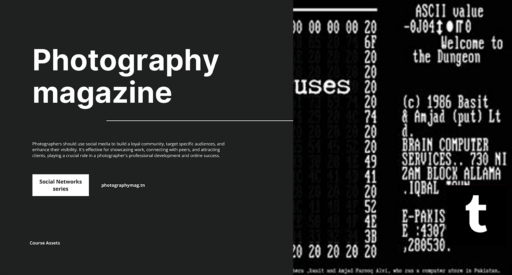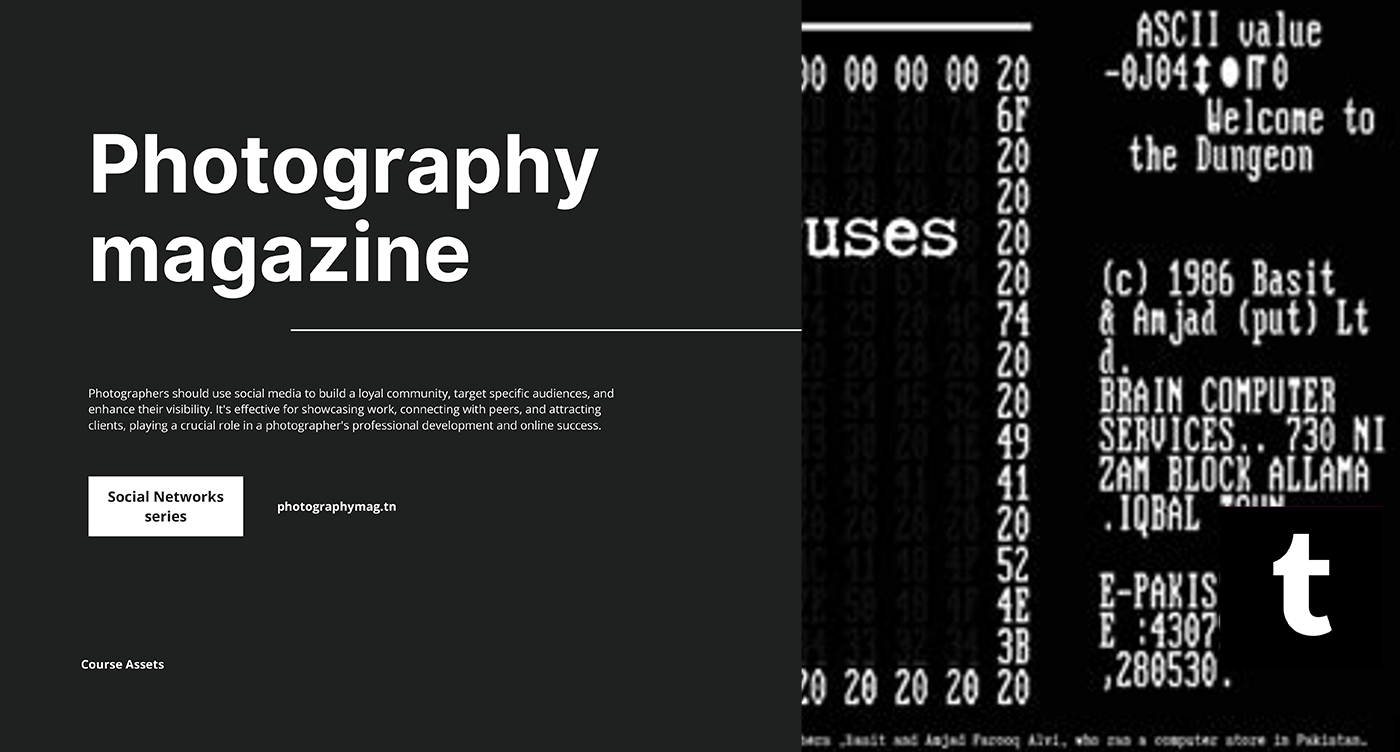Is Your Computer Safe on Tumblr? Let’s Find Out!
Well, well, well! If it isn’t the age-old question popping up in every techie forum and coffee shop discussion: “Can Tumblr give your computer a virus?” Grab your popcorn because we’re diving into the digital rabbit hole of social media safety, malware, and more!
So, let’s spill the tea: Tumblr is indeed a hot spot for malware infections, spam, and other security concerns. But don’t panic just yet; for every dark corner of the internet, there’s a flickering light of knowledge just waiting to guide you. In this informative yet snarky guide, you’ll learn about the potential hazards lurking on Tumblr, and how to sail smoothly through the cyberspace storm without snagging any unwanted infections.
First Off, What’s Tumblr Anyway?
In case you’ve been living under a rock (or maybe furiously browsing TikTok), Tumblr is a microblogging platform where you can share multimedia content, musings, and the occasional cat meme that gives you a chuckle. With its colorful array of GIFs, photos, and thoughts, it’s a paradise for creativity but also a playground for troublemakers. Let’s unpack what that really means!
The platform attracts millions of users, who pour out their deepest thoughts, creative expressions, and, let’s be honest—endless scroll-worthy distractions. Now, while all that creativity sounds wonderful, it also lays out a welcome mat for cybercriminals looking to spread malware as casually as someone offering free samples at Costco.
What Exactly Is Malware, Anyway?
Before we go deeper, let’s get on the same page about what malware really is. Think of it like that awful party guest who shows up expected and uninvited with pizza grease on their shirt and a sour attitude. Malware, or malicious software, includes anything that can damage your computer or steal your information. That could be viruses, worms, Trojans, and spyware—basically the Hall of Shame of the cyber world.
While browsing Tumblr, you might inadvertently click on pesky links that lead you straight into malware’s clutches. These can come from nefarious sources that have disguised themselves as something harmless—kind of like that “too good to be true” deal on the latest smartphone. Spoiler alert: it’s not gonna end well.
How Does Malware Infect Your Device on Tumblr?
Now that you know what malware is, let’s discuss how it can find its way to your shiny new laptop or beloved tablet whilst basking in the artistic glory of your favorite Tumblr blogs.
- Links and Attachments: Be discerning with links. If a blog looks sketchy, or you see a link promising to unveil the “secret to ultimate happiness,” you might just open the door to malware, instead.
- Drive-By Downloads: This delightful little non-party trick occurs when a website automatically downloads files onto your computer without your consent. So, clicking on a particularly flashy GIF may very well be more than your eyes bargained for.
- Embedded Media: Just like that friend who introduces you to all of their friends (some of whom you’d really rather not meet), Tumblr embeds media from other sources. If one of those sources is shady, they might sneak malware along for the ride.
- User-Generated Content: Ah, the beautiful randomness of user-generated content! However, this treasure trove can also hold hidden pitfalls, including potentially harmful links or files.
Are You More Likely to Get Malware on Tumblr Than Other Sites?
You betcha! Here’s the deal: Tumblr, like many other popular social networking sites, can create a veritable smorgasbord of malware threats. While it might not be the only platform where you can encounter these pesky risks, the abundance of user-generated content increases your chances of accidentally clicking on bad links.
When you compare it to reputable sites that employ robust security measures, Tumblr isn’t exactly winning any safety awards. The platform has less rigorous control over what get’s posted, which can make it easier for cybercriminals to play their games. Additionally, the anonymity of users can make it harder for authorities to track down who is spreading malware. So, yes, you might want to exercise a little more caution while surfing Tumblr compared to browsing your bank’s website.
Can Tumblr Users Spot Malware?
Sure, some Tumblr users are savvy, but that doesn’t mean that everyone has malware-detecting radar. Here’s a little cheat sheet to help you spot potential trouble:
- Wacky URLs: If a link looks like it belongs in a horror film rather than a reputable site, it probably does! Be careful of URLs that seem misspelled or overly complicated.
- Unusual Blog Activity: If a blog that was once sharing thoughtful content suddenly starts spewing spammy links, back away slowly. That’s a red flag that malware might be at play.
- Content Prompting Weird Behavior: If clicking through a blog causes pop-ups to appear faster than a rabbit on a double espresso, it’s time to leave!
How to Stay Safe While Browsing Tumblr—You Know You Want These Tips!
Congratulations! You’ve made it this far, which means you want to keep your device safe while diving into the Tumblr universe. Here are some tips that might save you from a malware meltdown:
- Install Quality Antivirus Software: This is the digital equivalent of allowing a bouncer to keep an eye on your party. A good antivirus program can help detect malware before it crashes the festivities.
- Use a VPN: A Virtual Private Network can act as an extra layer of protection, acting like a VIP room at the club—no riffraff allowed!
- Enable Pop-Up Blockers: Those annoying pop-ups can be deceiving, opening doors to malware like a VIP pass. Use pop-up blockers to give them the boot.
- Keep Your OS and Apps Updated: Just like a good workout regimen, keeping your operating system and applications up to date can help stave off vulnerabilities.
- Be Cautious with Clicks: Click smart! Don’t just click on any shady link, even if it promises to unlock the secrets of the universe. If it feels fishy, don’t bite!
- Educate Yourself: Knowledge is your best weapon. Regularly update your understanding of internet safety, and familiarize yourself with common scams and tricks.
What Should You Do If You Get a Virus From Tumblr?
Oopsie! If you unknowingly stepped into malware’s warm embrace while navigating Tumblr, don’t lose your cool. Here’s what you can do:
- Disconnect from the Internet: This can prevent malware from spreading or communicating with its creators.
- Run Your Antivirus Software: Do a full system scan to detect and eliminate any nasties. Consider it a digital cleanup crew!
- Delete Infected Files: Wait, what?! Yes, you need to remove files identified as malicious to fully reclaim your pirate ship! (Insert your best pirate laugh)
- Change Your Passwords: If malware penetrated your system, change the passwords for any sensitive accounts right after cleaning your device.
- Seek Professional Help (If Need Be): Sometimes you can’t do it all alone. If you cannot shake the malware, don’t hesitate to reach out to a tech-savvy friend or professional.
Final Thoughts: Navigate Tumblr Wisely!
So there you have it! Tumblr can indeed be a breeding ground for malware infections, but doesn’t that just add to its charm? With a pinch of caution and a sprinkle of smart practices, you can enjoy everything Tumblr offers while keeping your devices healthy and virus-free.
As you continue your creative journey through the chaotic world of various blogs, GIFs, and social connections, let this guide be your trusty road map. It’s a wild ride out there in the jungle of social media, but you’ve got the tools to navigate safely, sans malware!
Remember to always take a step back, verify those links, and keep a watchful eye on your computer’s health. Happy Tumbl-ing, and may the internet gods keep you virus-free!





